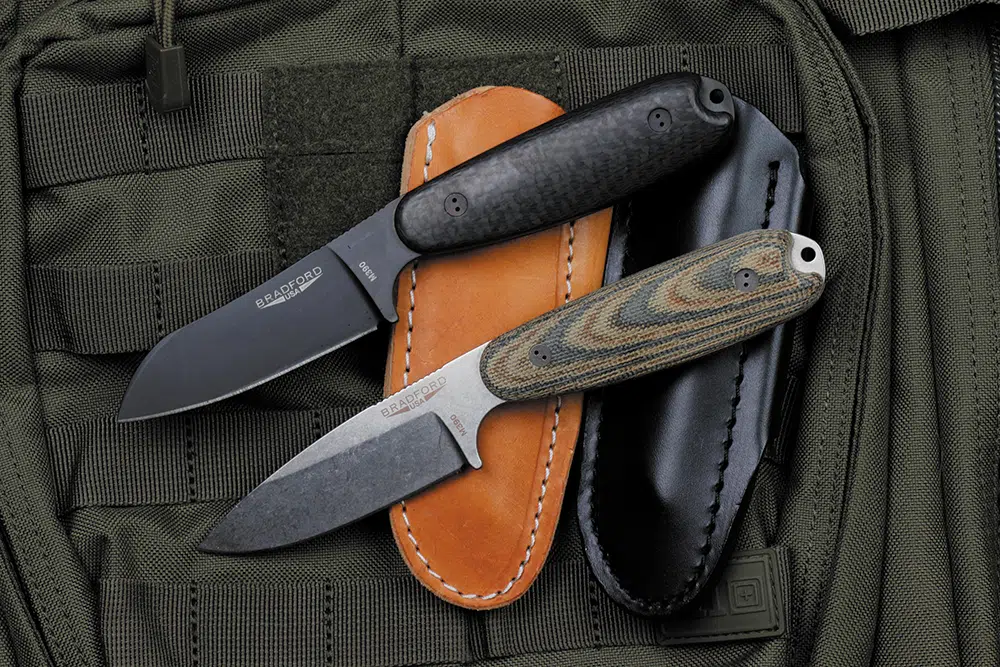For any kitchen professional, the choice of tools is critical in ensuring efficiency and precision. Among these tools, Compact fixed blade knives stand out as a quintessential component in the culinary world. Known for their durability and versatility, they are indispensable in both professional and home kitchens. This article explores the nuances of these knives, their advantages, maintenance tips, and why every kitchen professional should consider them an essential part of their toolkit.

Why Choose Compact Fixed Blade Knives?
The decision to use compact fixed blade knives in the kitchen is driven by their unique characteristics that cater specifically to the needs of culinary professionals. Unlike folding knives, fixed blade knives are more robust, offering a solid and reliable cutting experience without the risk of folding during use. This makes them ideal for tasks requiring consistent pressure, such as chopping, slicing, and dicing.
The compact nature of these knives also offers a significant advantage. Their smaller size ensures they are easy to maneuver, providing precision in tasks that demand attention to detail, like garnishing or slicing delicate ingredients. For more insights into the various types of knife blades, you can explore different types of knife blades.
Advantages of Compact Fixed Blade Knives
Compact fixed blade knives offer several advantages that make them a favorite among culinary experts:
- Durability: The absence of moving parts reduces wear and tear, ensuring longevity.
- Strength: A full tang design enhances strength, making them suitable for heavy-duty tasks.
- Precision: The compact size allows for precise control, crucial for intricate cutting tasks.
- Ease of Maintenance: With fewer moving parts, these knives are easier to clean and maintain. Learn more about oiling a fixed blade knife to keep it in top condition.
How to Maintain Your Compact Fixed Blade Knives
Proper maintenance is vital to ensure the longevity and performance of compact fixed blade knives. Here are some essential tips:
Regular Cleaning
Always clean your knife after each use. This prevents the buildup of food particles and bacteria. Use mild soap and water, and dry it immediately to avoid rust. For guidance on what happens if you forget to dry your knife, visit what happens when you forgot to dry a knife.
Sharpening
Keeping your knife sharp is crucial for efficiency and safety. Use a whetstone or a professional sharpening service regularly. For more detailed instructions, check out how to sharpen a fish fillet knife.
Proper Storage
Store your knives in a knife block or magnetic strip to protect the blades and ensure safety in the kitchen.
Choosing the Right Compact Fixed Blade Knife
Selecting the right compact fixed blade knife involves considering factors like the type of material, handle design, and blade length. It's important to choose a knife that's comfortable to hold and suits your specific cooking style. For a selection of the best knives, you might explore best fixed blade knives under 51.
Material
High-carbon stainless steel is a popular choice due to its balance of sharpness, durability, and resistance to corrosion.
Handle Design
Opt for ergonomic handles that provide a secure grip, reducing the risk of accidents during use.
Blade Length
The ideal blade length varies depending on the intended use. However, a 5 to 7-inch blade is versatile enough for most kitchen tasks.
Conclusion
In conclusion, compact fixed blade knives are an essential tool for any kitchen professional. Their durability, precision, and ease of maintenance make them a reliable choice for a variety of culinary tasks. By understanding how to choose, maintain, and utilize these knives effectively, kitchen professionals can enhance their efficiency and elevate their culinary skills.

FAQ Section
What are the benefits of using compact fixed blade knives over folding knives?
Fixed blade knives offer greater durability and strength, making them suitable for heavy-duty kitchen tasks. They also provide more stability and precision.
How often should I sharpen my compact fixed blade knife?
It's recommended to sharpen your knife every few months, depending on usage. Regular honing can help maintain the edge between sharpening sessions.
What is the best way to store compact fixed blade knives?
Store them in a knife block or on a magnetic strip to protect the blades and ensure safety.
This article contains affiliate links. We may earn a commission at no extra cost to you.


























